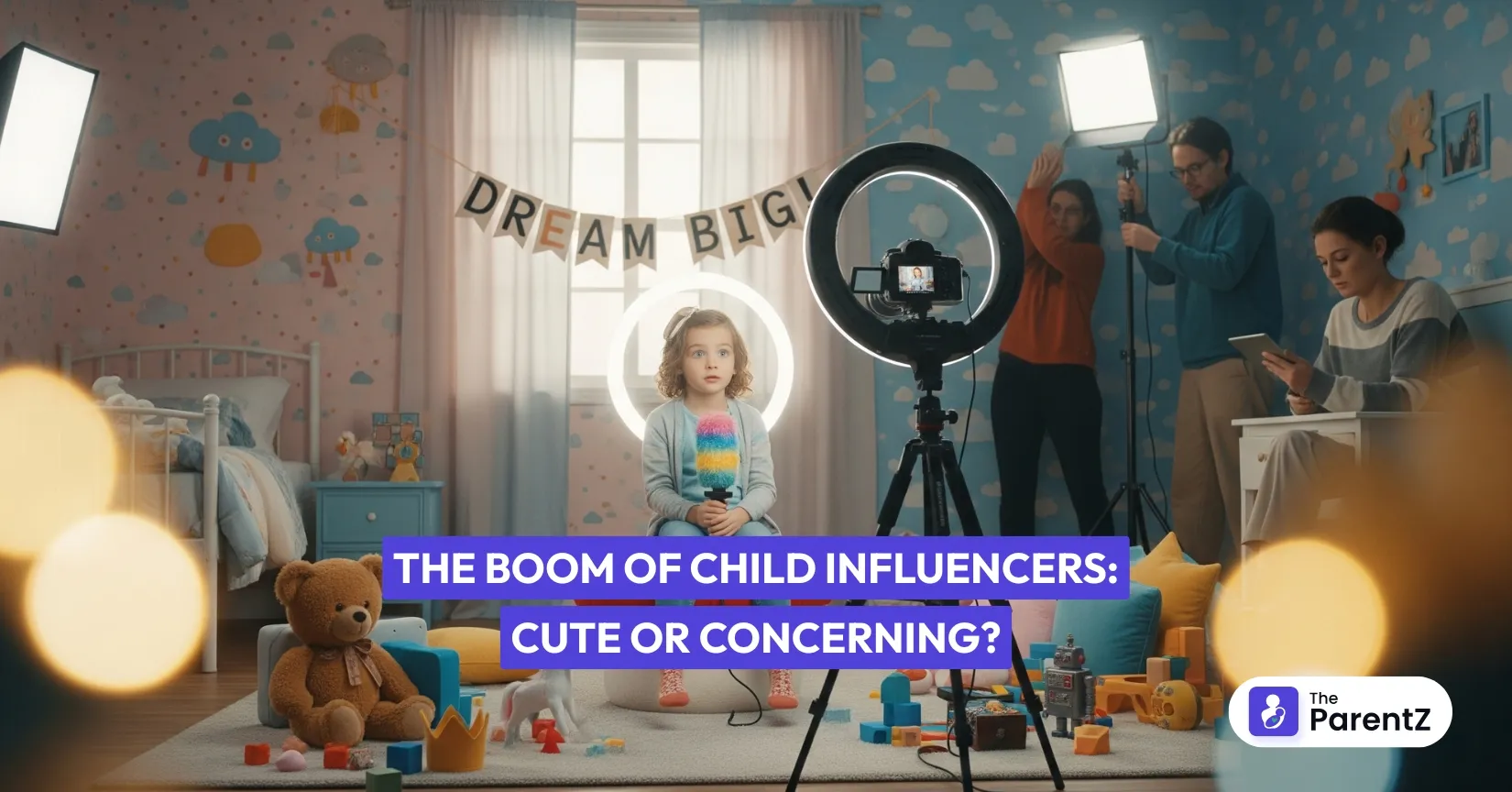Scroll through Instagram, TikTok, or YouTube today, and you’ll come across a child influencer in no time. A six-year-old baking cupcakes on her own, a tiny fashionista trying out outfits, a toddler dancing with perfect expressions. These videos are adorable, shareable, and almost impossible to scroll past. They rack up millions of views, attract brand deals, and in many cases, bring in more money than a regular job ever could.
At first glance, it feels harmless and sweet. Parents are capturing precious moments, kids are having fun, and the audience enjoys the cuteness. But as we dig deeper, a big question looms: Is it cute, or is it concerning?
The Appeal of Child Influencers
We can’t deny why child influencers are booming. Kids are naturally entertaining without effort. Their innocence, honesty, and sense of fun make them instantly lovable. Parents, too, feel proud seeing their children win attention and appreciation. Brands see money-making potential, and before you know it, a child ends up with more followers than adults who’ve been trying for years.
Kids often like performing. They enjoy pretending, making videos, dressing up, or showing off a new skill. In many cases, it genuinely starts as play. Parents film it, upload it, and suddenly the internet can’t get enough.
But the very same things that make these videos viral also make them vulnerable.
When Fun Crosses Into Exploitation
A child online isn’t just being seen by friendly faces who adore them. They’re also being seen by strangers with less innocent motives. The internet is full of people who misuse children’s pictures and videos in disturbing ways. Once content is uploaded, it’s out there forever, copied, downloaded, and shared beyond any parent’s control.
Then comes another layer of concern: what happens when parents start depending on their kids’ popularity? A child enjoying makeup tutorials for herself is different from a child being made to film three times a week because “people are asking for more.” The pressure of views, likes, and brand expectations can quietly strip the fun away, turning playtime into unpaid, unprotected labor.
Unlike adults, children don’t really understand what a digital footprint means. They don’t grasp that the makeup tutorials or silly dances they do at eight years old will still exist online decades later. And sometimes, they don’t even get a choice; they are simply too young to say no.
The Internet Isn’t Always Safe
Another truth parents often underestimate is how unsafe the internet can be. Cute dance reels or innocent pictures can be misused, edited, or even fetishized by predators. Reports have shown time and again that child content is a magnet for the wrong kind of attention.
And it’s not just strangers. Overexposure itself takes a toll. Kids grow up being recognized in public or constantly watched, which can affect their sense of self. They may tie their worth to likes and comments, feeling pressure to always perform and stay “relevant.” Childhood slowly becomes less about play and discovery, and more about algorithms and audience demand.
Drawing the Line: Cute or Concerning?
So, how do parents know when it’s “cute” and when it’s becoming “concerning”? Here are some signs to watch carefully:
- Choice: Is the child actively enjoying it, or do they seem tired, reluctant, or resistant?
- Frequency: Are videos being made constantly for views, or just occasionally for fun?
- Privacy Level: Are you oversharing details like school, routines, or home environment that could risk safety?
- Boundaries: Are children being styled, dressed, or posed in ways that may be “too adult” or inappropriate for their age just to attract more views?
- Control: Who owns the account, the parent or the child? And who benefits from the earnings, if there are any?
What Can Parents Do?
No parent sets out to exploit their child. Most start because it feels like joy, a memory-keeping exercise, or a way of showing the world their little one’s uniqueness. But in today’s digital world, awareness is key.
- Protect Their Privacy: Avoid posting every detail. Never share personal information, such as your school, address, or daily routine, with anyone.
- Limit Posting: Not every moment needs to be online. Keep some memories offline, just for the family.
- Set Boundaries with Brands: If collaborations come your way, make sure they are age-appropriate and don’t turn into endless work for the child.
- Ask for Consent: Even kids as young as five or six can express what they’re comfortable with. Listen to them.
- Remember Childhood First: Childhood is short. Kids should be free to explore, fail, laugh, and play, beyond trending reels.
Conclusion
Child influencers are everywhere, and it’s easy to get swept up in the adorableness of it all. But behind the cuteness, there’s a serious side we can’t ignore. The internet is permanent, strangers aren’t always safe, and kids can be pushed into roles they don’t fully understand.
So, is it cute or concerning? The honest answer is, it’s both. It can be sweet and fun if done occasionally, with care and strong boundaries. But it can quickly slide into exploitation if parents let views and followers drive the decisions.
As parents, perhaps the most important reminder is this: kids are not content machines. They’re little humans with huge futures ahead, and their childhood should be about more than performance. Likes and views fade, but the impact of growing up online lasts forever.





Be the first one to comment on this story.